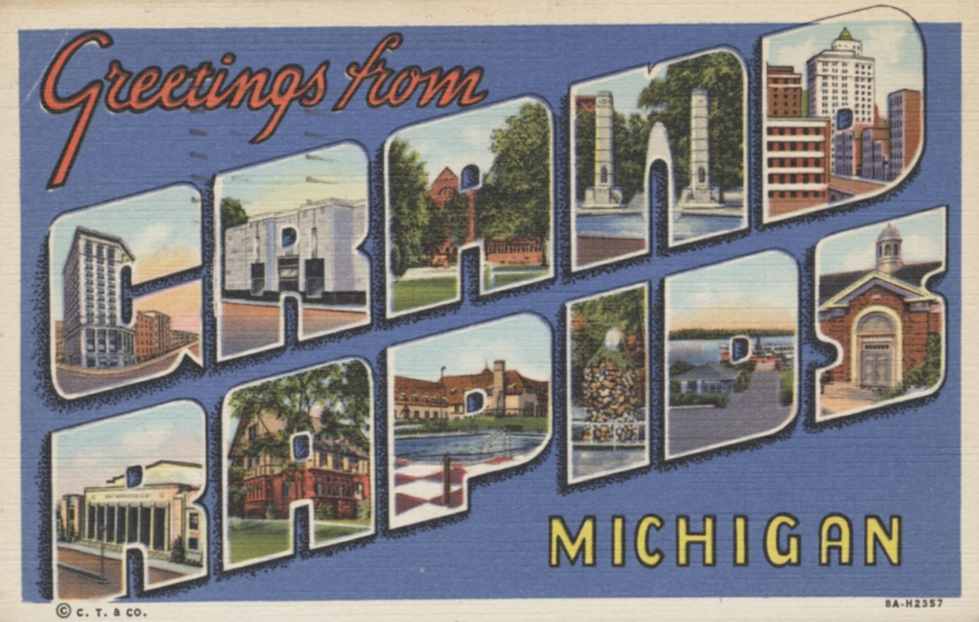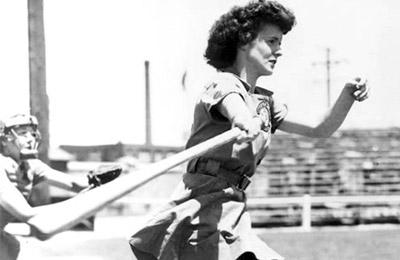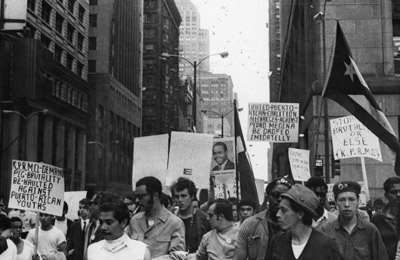Interviews & Oral History
Collections listed below contain oral history interviews recorded to preserve individuals' recollections about their lives and participation in historical events. Follow the link provided to access a detailed, descriptive finding aid for the collection. Or, when available, view or listen to recordings that have been added to our Digital Collections. Recordings that have not been digitized can be accessed in our reading room in Seidman House.
Grand Rapids Oral History Collection
Taped and transcribed interviews conducted in the early 1970s primarily of the children and grandchildren of many of the founders of Grand Rapids, Michigan; many of whom were residents of the Heritage Hill neighborhood. Interviews were collected to develop a significant collection of oral resources that would supplement other primary and secondary local history materials. Initially funded as a private project, Grand Valley assumed responsibility for continuing the project until 1977.
GVSU Veterans History Project
Interviews with veterans from WWII, Korea, Vietnam, conflicts in the Middle East, and other veterans and civilians collected by the GVSU History Department begun in conjunction with the Library of Congress. The Veterans History Project was established in 2001 to collect memories, accounts and documents of U.S. war veterans to preserve these stories for future generations.
All-American Girls Baseball League Interviews
The All-American Girls Professional Baseball League was started by Philip Wrigley, owner of the Chicago Cubs, during World War II to fill the void left by the departure of most of the best male baseball players for military service. Players were recruited from across the country, and the league was successful enough to be able to continue on after the war. The league had teams based in Wisconsin, Illinois, Indiana and Michigan, and operated between 1943 and 1954. The 1954 season ended with only the Fort Wayne, South Bend, Grand Rapids, Kalamazoo, and Rockford teams remaining. The League gave over 600 women athletes the opportunity to play professional baseball. Many of the players went on to successful careers, and the league itself provided an important precedent for later efforts to promote women's sports.
All-American Girls Professional Baseball League Digital Collection
All-American Girls Professional Baseball League Interview Collection Finding Aid
Young Lords in Lincoln Park Collection
The Young Lords in Lincoln Park collection grows out of the ongoing struggle for fair housing, self-determination, and human rights that was launched by Mr. José “Cha-Cha” Jiménez, founder of the Young Lords Movement. This project is dedicated to documenting the history of the displacement of Puerto Ricans, Mejicanos, other Latinos, and the poor from Lincoln Park, as well as the history of the Young Lords nationwide. Recording, preserving, and making these memories accessible to teachers, researchers, and the community is the guiding aim of this project. Highlights of the collection include the papers of Jose Jimenez and the Young Lords including historical photographs, flyers and clippings documenting the origins of the Young Lords movement. Also included are Jiménez’s files from his campaign for alderman of Chicago’s 46th ward, founding of the Lincoln Park Camp, and KO Club as well as photos, documents, clippings, and related ephemera donated by other individuals who have been interviewed as part of this project are also included. The Digital Collection contains video interviews conducted by Jiménez with members of the Young Lords organization.
Young Lords in Lincoln Park Oral History Digital Collection
José "Cha-Cha" Jiménez Young Lords in Lincoln Park Collection Finding Aid
Michigan Philanthropy Oral History Project (MPOHP)
The MPOHP was initiated in 2006 as an innovative partnership between the Council of Michigan Foundations, StoryCorps, Michigan Radio and the Dorothy A. Johnson Center for Philanthropy and Nonprofit Leadership at Grand Valley State University to create an oral history of Michigan philanthropy.





